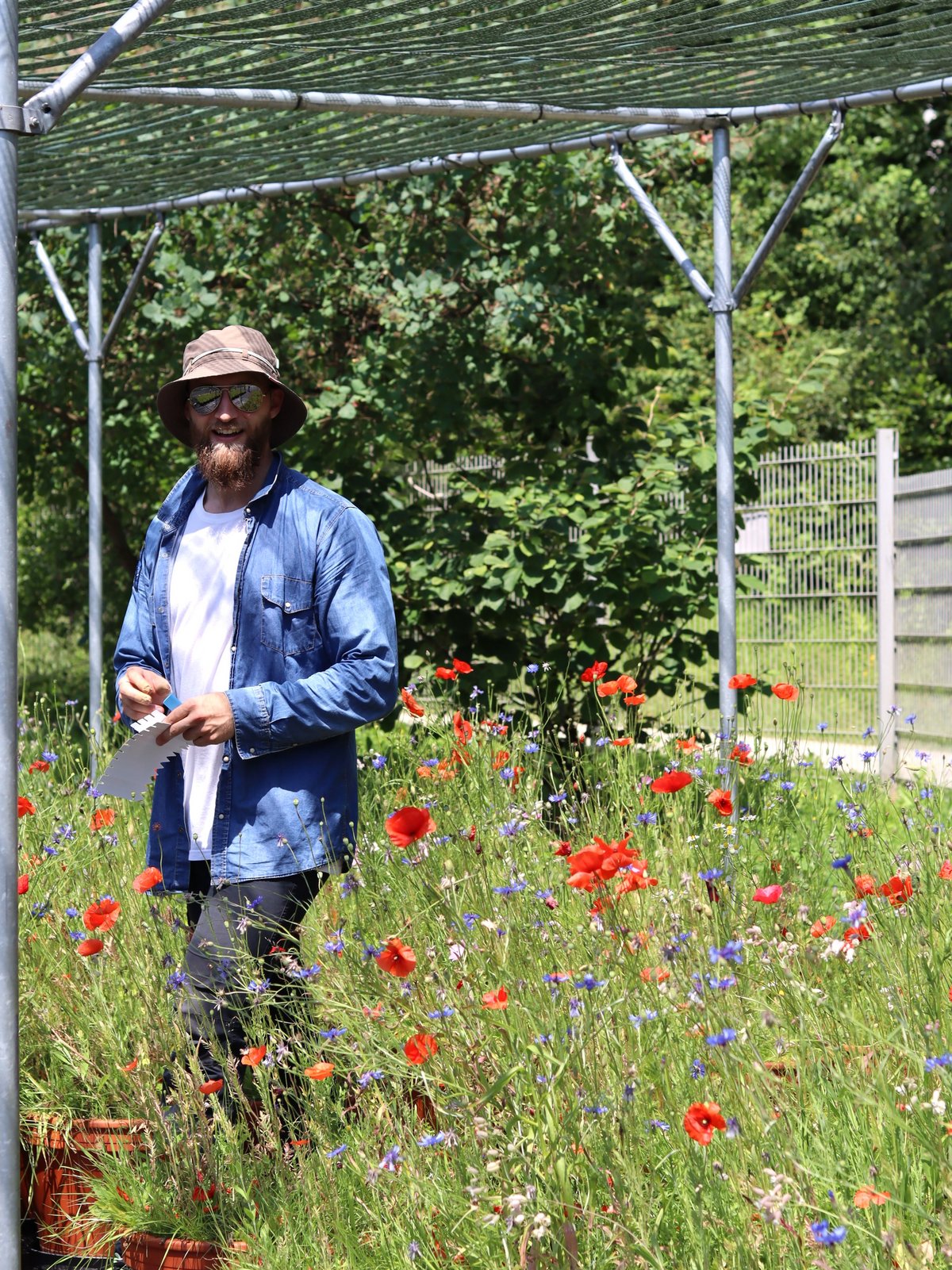
Benedikt Speißer
Global change as a multifactorial process can have far-reaching economic, social and ecological consequences. Many global change factors have become omnipresent. However, the potential ecological impacts are often still unclear. Therefore, I’m investigating the ecological effects of global change, focusing on plants and plant communities.
To better understand potential ecological impacts of global change, it is essential to investigate the effects of major individual global change factors, as well as the effects of simultaneously acting factors. Hence, in previous projects, I investigated how light pollution interacts with plant commonness and plant invasions, and how the number of simultaneously acting global change factors itself can affect plant communities.
Currently, I’m focusing on plastic pollution, microplastics in particular, which have become a topic of high social and scientific interest. However, although the majority of plastic waste is initially ending up and accumulating in terrestrial environments, both social and scientific awareness regarding this topic was mainly restricted to marine environments, for a long time. As a consequence, we are just beginning to investigate and to understand potential effects of (micro-) plastic pollution on terrestrial ecosystems. As plants play a central role in these ecosystems, they are crucial to better understand potential ecological effects of plastic pollution. Therefore, I’m currently investigating how plants respond to, and how plant communities are affected by microplastics, gaining further insights into this hot topic.
Publications
Speißer B (2024) Time matter: Why ecological effects of microplastics might change over time. Journal of Applied Ecology 61:4-6 (DOI: 10.1111/1365-2664.14542)
Speißer B & van Kleunen M (2023) Plants forage for soil patches free of plastic pollution but cannot bag the profits. Scientific Reports 13:18506 (DOI:10.1038/s41598-023-45662-7)
Speißer B, Wilschut RA & van Kleunen M (2022) Number of simultaneously acting global change factors affects composition, diversity and productivity of grassland plant communities. Nature Communications 13:7811 (DOI:10.1038/s41467-022-35473-1)
Liu YJ, Speißer B, Knop E & van Kleunen M (2022) The Matthew effect: Common species become more common and rare ones become more rare in response to artificial light at night. Global Change Biology 28:3674-3682. (DOI: 10.1111/gcb.16126)
Speißer B, Liu YJ & van Kleunen M (2021) Biomass responses of widely and less-widely naturalized alien plants to artificial light at night. Journal of Ecology 109:1819-1827. (DOI: 10.1111/1365-2745.13607)
(Update: 11.01.2024)
